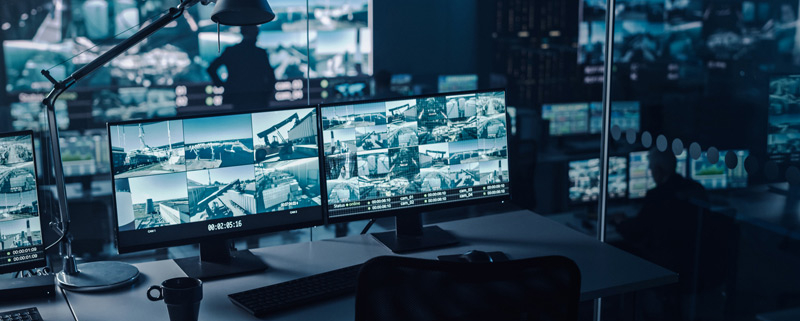Fighting Loitering with Video Surveillance
- Cybersecurity at Home and Work - October 6, 2024
- Security Solutions for Government Properties in the Mid-Atlantic - September 11, 2024
- Top 10 Summer Security System Tips: Keeping Your Delaware Home Safe - July 10, 2024
Because loitering happens in all our service areas, we know how businesses throughout the Tri-State area are impacted by it. When loiterers persistently station themselves in or around a business, prospective customers can be dissuaded from entering. Once they tell others about the loitering taking place, word can spread very quickly. In short, loitering has a detrimental impact on entire blocks of businesses. Loitering also happens outside apartment buildings, which can lead to residents feeling unsafe and detracts prospective new tenants. Loitering is no small matter, which is why video surveillance is needed to help fight it.
What is Loitering?
In the four states that comprise our service area, loitering has different definitions.
Loitering in Delaware
In Delaware, loitering is defined as when a person:
- Fails or refuses to move on when lawfully ordered to do so by any police officer.
- Stands, sits idling or loiters upon any pavement, sidewalk or crosswalk.
- Stands or sits in a group or congregates with others on any pavement, sidewalk, crosswalk or doorstep in any street or way open to the public “so as to obstruct or hinder free and convenient passage.”
- Remains in or about a school building or grounds without having custody of or responsibility for a student.
- Remains or wanders about in a public place for the purpose of begging.
- Remains in a public place for the purpose of engaging or soliciting sexual intercourse.
Loitering in New Jersey and Pennsylvania
In New Jersey, loitering refers to wandering, circling, prowling, or remaining in a public place with the intent to buy or sell a controlled, dangerous substance. In Pennsylvania, loitering encompasses other activities related to “maliciously prowling” around a residence not belonging to the person.
Loitering in Maryland
In Maryland, loitering includes standing around, gathering in a crowd or parking a car in a public space to interfere with the free passage of others. It becomes a crime when harassment, cursing or threatening occurs, or if a police officer determines “there is a reasonable likelihood a breach of the peace or disorderly conduct shall result.”
Other Definitions of Loitering
For most property owners, many nuisances that may be happening on the premises (such as “hanging out” outside a business or apartment building) look and feel like loitering.
Whether or not the activity taking place falls under the legal definition of loitering in your state, you have the right to use video surveillance to protect your property from trespassers.
Using Cameras to Detect Loitering
With the right security cameras, property owners in all our service areas can discourage loitering attempts by individuals and groups. Our intelligent outdoor cameras can detect individuals who linger, or groups who gather. Then, they trigger an alert to the account holder so action can be taken as needed. Very quickly, the presence of cameras can deter serial loiterers from using your property for their activities.
To learn more about fighting loitering with video surveillance in Delaware, Pennsylvania, New Jersey or Maryland, call Security Instrument today. We’re ready to help.
About Security Instrument
From Fortune 500 to local SMB’s throughout the Tri-State area, Security Instrument integrates custom security systems to meet the needs of commercial clients.




